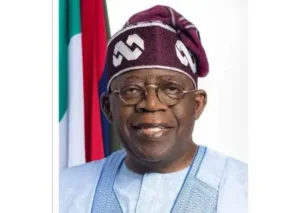In the ever-evolving tapestry of Spanish politics, a thrilling and groundbreaking development of a resounding victory recently unfolded for the Socialists. Spain’s Socialists, Francina Armengol, triumphed in the first parliamentary battle, securing the speaker role – the third-highest office in spain after the king and the prime minister.
In a closely watched vote, the candidate from the Spanish Socialist Workers’ Party has been elected as the parliamentary speaker, marking a significant step forward for Pedro Sanchez’s bid to reclaim the position of prime minister.
That thursday’s session was widely regarded as a dress rehearsal ahead of a vital investiture vote, which ultimately will determine the party that will take charge of forming the government. This comes after a July election that ended without a clear victor.
Francina Armengol, a 52-year-old remarkable leader, has been appointed as the parliamentary speaker. This prestigious position, which ranks third-highest in Spain’s political hierarchy, was rightfully bestowed upon her with an overwhelming majority of 178 votes out of the total 350-seat chamber.
Francina Armengol’s election as parliamentary speaker was made possible through a significant last-minute agreement with the hardline Catalan separatist party JxCat, who emerged as the influential kingmaker in this situation.
In the July elections, neither the left nor the right obtained enough seats to form a working majority of 176 mandates.
Each side could only gather the support of 171 lawmakers from different parties. This has given JxCat a powerful position, as their seven lawmakers’ votes proved crucial in securing Armengol’s election. Now, Sanchez is optimistic that a similar collaboration with JxCat will help him in an investiture vote, even though experts suggest that those negotiations will undoubtedly be more complex.
Although winning the speaker vote was “a good sign” for Sanchez, it “by no means guarantees his appointment for another term, given substantial obstacles to meeting JxCat’s demands”, said Federico Santi, an analyst at Eurasia Group in London.
This vote also shed light on the challenges that Alberto Nunez-Feijoo, the leader of the right-wing Popular Party (PP), is facing. Although the PP emerged as the winners in the election, they received less support than anticipated, which means that they will require the far-right Vox party’s assistance in forming a government.
However, instead of throwing their support behind Cuca Gamarra, the PP’s candidate for the vote, Vox’s 33 Members of Parliament chose to vote for their own candidate, leaving Gamarra struggling to gain the necessary support.
Once a speaker is chosen, the first task for the parliament will be to select a prime minister. An investiture vote is scheduled to take place later this month or in early September.
But the Socialists, along with their radical leftist ally Sumar, had before now reached an agreement with four demands in return for their support. JxCat said, insisting the deal was “not linked to the investiture vote”.
JxCat stated that the agreement included the official recognition of Catalan as a language within the European Union, as well as its use in Spain’s parliament.
Furthermore, the agreement also entailed the establishment of two investigative committees to look into the 2017 Barcelona terror attacks and the utilization of Pegasus software for surveillance on Catalan separatists. However, when it comes to the investiture vote, the requirements and expectations have been raised significantly.
The separatist group is proposing amnesty for individuals who were pursued by the Spanish justice system in relation to the failed 2017 independence movement. They are also advocating for a referendum on self-determination.
JxCat leader, Carles Puigdemont, is requesting reliable guarantees prior to offering support to Spain’s upcoming government.
“We have no confidence in Spanish political parties,” he wrote on Wednesday on X, the social media platform formerly known as Twitter.
“We cannot move forward on the basis of promises made by those who always fail to keep them, so we need to see solid guarantees before committing to vote.”
Carles Puigdemont, along with other individuals, is wanted by the Spanish justice system for their involvement in the failed 2017 independence movement. Puigdemont, who was the head of the regional government of Catalonia at the time, organized a banned referendum in October 2017, which led to a short-lived declaration of independence. To avoid prosecution, he fled to Belgium and now leads JxCat from there.
Pedro Sanchez’s selection of Francina Armengol is seen as a gesture towards the separatists. Armengol previously served as a regional leader in the Balearic Islands, where Catalan is widely spoken.
Moreover, Sanchez pledged on Wednesday to promote the use of Catalan, Basque, and Galician within Europe, a long-standing demand of nationalist parties.
“Spain speaks Castilian Spanish but also Catalan, Basque and Galician. We are going to promote the use [of these languages] within EU institutions in a commitment I will carry out during Spain’s presidency of the EU,” he said of the role Spain took over on July 1.
CONCLUSION
Overall, this milestone for the Socialists marks an important moment in Spain’s political history and sets the stage for further developments in the days to come. It will be interesting to see how this accomplishment will impact Spain’s political dynamics and the policies that will be implemented under their leadership.
This victory not only demonstrates their strength and influence within the political landscape but also positions them as key players in shaping the future direction of the country.
Like Our Story ? Donate to Support Us, Click Here
You want to share a story with us? Do you want to advertise with us? Do you need publicity/live coverage for product, service, or event? Contact us on WhatsApp +16477721660 or email Adebaconnector@gmail.com





